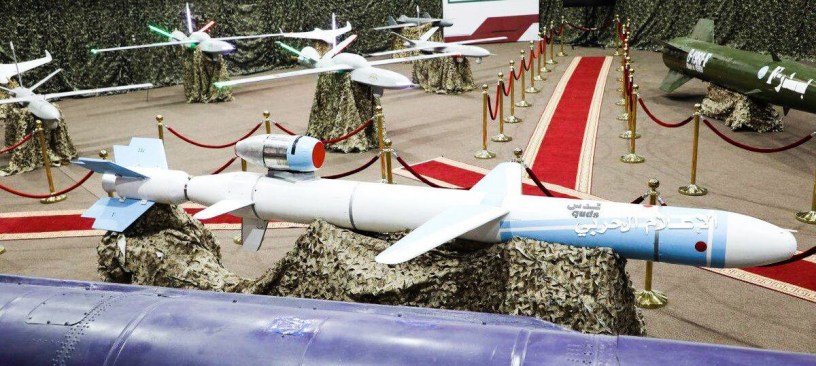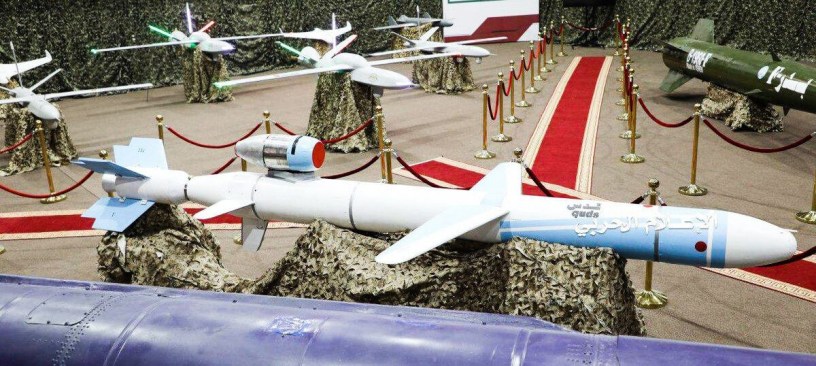The Saudis just learned that some moments in history show their significance as they unfold. Iran shooting down a US Global Hawk stealth drone and President Trump refusing his war-hawk cabinet in retaliating militarily is one of them.
I said then and still maintain that this was a turning point in the history of the world.
Any retaliation by the US would be catastrophic for the world economy. It would unleash a regional conflict on multiple fronts which would not be any kind of controlled theater…
… That for all the might of the US military and financial empire, its weaknesses are deep enough that even a relatively weak military and economy like Iran’s can stop it all dead cold because of basic things like geography, logistics and simple human resolve.
Many people misinterpreted these statements, and, indeed the entire article, to mean that Iran could stand up to the US in a direct military conflict and prevail. Nonsense.
War today isn’t just fought with soldiers, bombs, guns and drones. It’s fought in all theatres including the commodities futures and forex markets.
And Trump backing down had everything to do with the fragility of the world economy and his own worries over getting re-elected if his military invasion of Iran sent oil to $250 per barrel.
As we move farther downstream from that event things become clearer just how important it was. Sure, Trump et. al. will fulminate and commit provocations, like impounding the Grace 1 oil tanker, but as far as anything substantive it’s all rearguard actions as the US’s opposition in the Middle East counter-attack.
And the Saudis are the natural weak link in the US/Saudi/Israeli alliance pushing for the balkanization of Syria, Turkey, Iraq and Iran; the ultimate goal of all US foreign policy objectives in the region.
Since then Iran has been busy, taking diplomatic meetings with the UAE, who were the Saudis’ main ally on the Arabian peninsula in its war on Yemen. And then, last week taking one with the Houthis in which Ayatollah Khamenei recognized them and officially outed Iran as supporting their resistance to Saudi rule.
And with the Gibraltar court demanding the release of the Grace 1 oil tanker, the next step had to be from the US whose frankly pathetic response was to issue an arrest warrant for the crew of the Grace 1 oil tanker.
Was that the moment Iran and the Houthis decided to launch a drone attack on a major Saudi oilfield far north of where the Houthis had struck previously that changed the game in Yemen?
At some point escalation can only go so far. The US tries to intimidate anyone from ghosting their ships to ship Iranian oil and Iran says, “Look, we’re serious. If we can’t ship oil, no one can.”
This is the official policy of Iran at this point.
Bernard at Moon of Alabama does a great job of breaking down events in Saudi Arabia. He is convinced the war is effectively over. That the Houthis gaining official Iranian support as well as showing off capabilities far in excess of what anyone thought they had signals that there is no rational defense of its infrastructure in a wider conflict.
The attack conclusively demonstrates that the most important assets of the Saudis are now under threat. This economic threat comes on top of a seven percent budget deficit the IMF predicts for Saudi Arabia. Further Saudi bombing against the Houthi will now have very significant additional cost that might even endanger the viability of the Saudi state. The Houthi have clown prince Mohammad bin Salman by the balls and can squeeze those at will.
The drones and missiles the Houthi use are copies of Iranian designs assembled in Yemen with the help of Hizbullah experts from Lebanon.
The Houthis attacked the Shaybah oilfield and refinery complex which produces more than 1 million barrels of oil per day. This is a direct attack on the Saudis’ ability to function as a somewhat sustainable economic and political power.
Bernard may be overstating the significance of this attack in the short-run as it is very possible that there will not be any suing for peace next week or anything. But the threat is real and if it is as indefensible as he suggests then it will be only a matter of time before the operation in Yemen comes to a close.
More importantly this incident plays back into what myself and others have said since the June 20th incident with the US drone. If President Trump is going to pursue war with Iran and continue to pressure their exports to zero then Iran will have no choice but to asymmetrically attack assets across the region and destabilize not only the oil markets but the political futures of major allies of the US in the region.
Think about this for one second (I know this is hard for the impulsive Trump) using the US Navy to impound oil tankers in International waters will only ensure chaos on the Arabian peninsula. It will result in a conflict that will engulf the entire region and destroy what’s left of Trump’s image as the guy who will stop us being the policeman of the world.
It’s all an elaborate bluff.
The Saudis have already lost so much in their botched attempt to overthrow Bashar al-Assad in Syria, the blockade of Qatar and to force a political realignment in Lebanon. None of Mohammed bin Salman’s strong arm tactics have succeeded in doing anything other than alienate more members of the Gulf Cooperation Council and put his benefactors in Washington in very hot water, politically.
Remember, the war in Yemen is deeply unpopular here in the US And our continued support of it is now wholly owned by President Trump who vetoed a bill to withdraw US support of the Saudis’ efforts there. He did this to support Israel and the Jared Kushner/Bibi Netanyahu plan to coerce a surrender of the Palestinians.
So, make no mistake, Iran knows where the fulcrums are. They know which of Trump’s buttons to push. And the Houthis just pushed a big one.
The Saudis have money and the ear of the US political elite and not much else. They are living on borrowed time as they still run big budget deficits thanks to low oil prices, which will continue to go lower, because of this attack.
Why? Because, the markets will again trade on the lack of response from the US not the incident itself. It will further hasten the collapse in the global oil price as the end of the Yemeni war will take that threat of war with Iran further off the table in the long run.
This is especially true as we approach the end of the grace period Iran gave the European Union to get back into compliance with the JCPOA. Because once they are done legally withdrawing from the agreement per its terms, then Iran will be free to pursue Russia’s offer to buy and resell up to 1 million barrels of Iranian oil per day, stabilizing exports.
Trump has already proven he’s unwilling to blow up the oil markets, and, by extension, the larger financial markets to bring Iran to heel. Everyone has their price. And the price of these low-tech drones from from Iran create the ultimate in asymmetric warfare. A few thousand bucks to paralyze trillions in capital.
Now that’s the Art of the Deal.
Reprinted with permission from TomLuongo.me.


